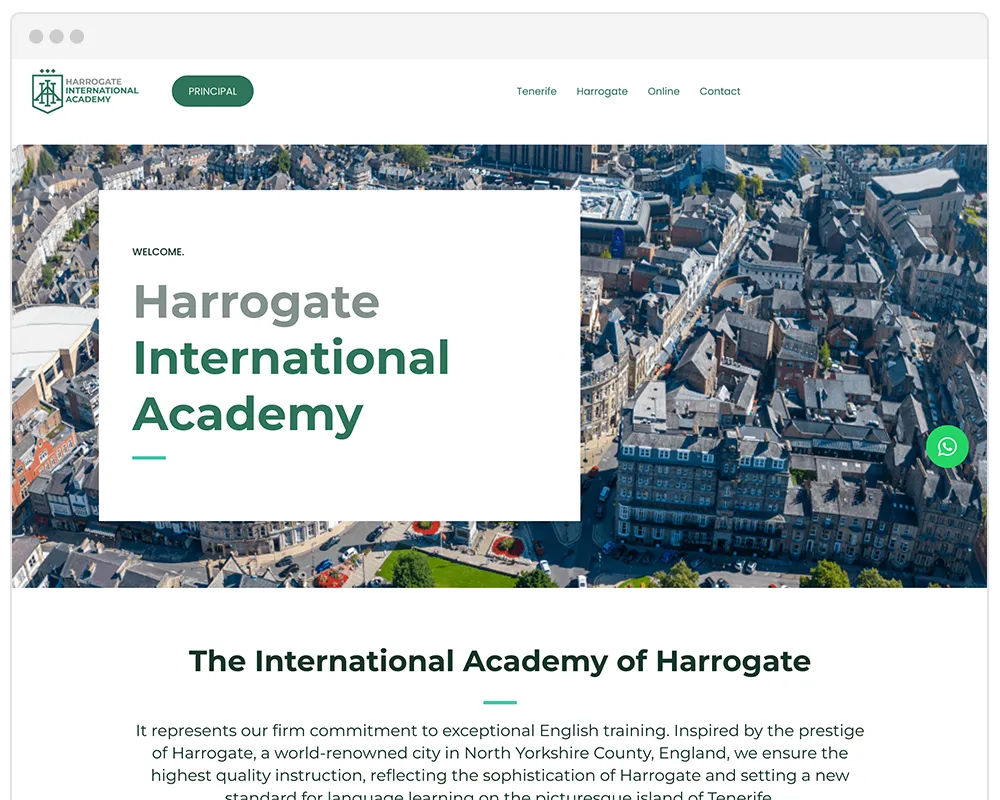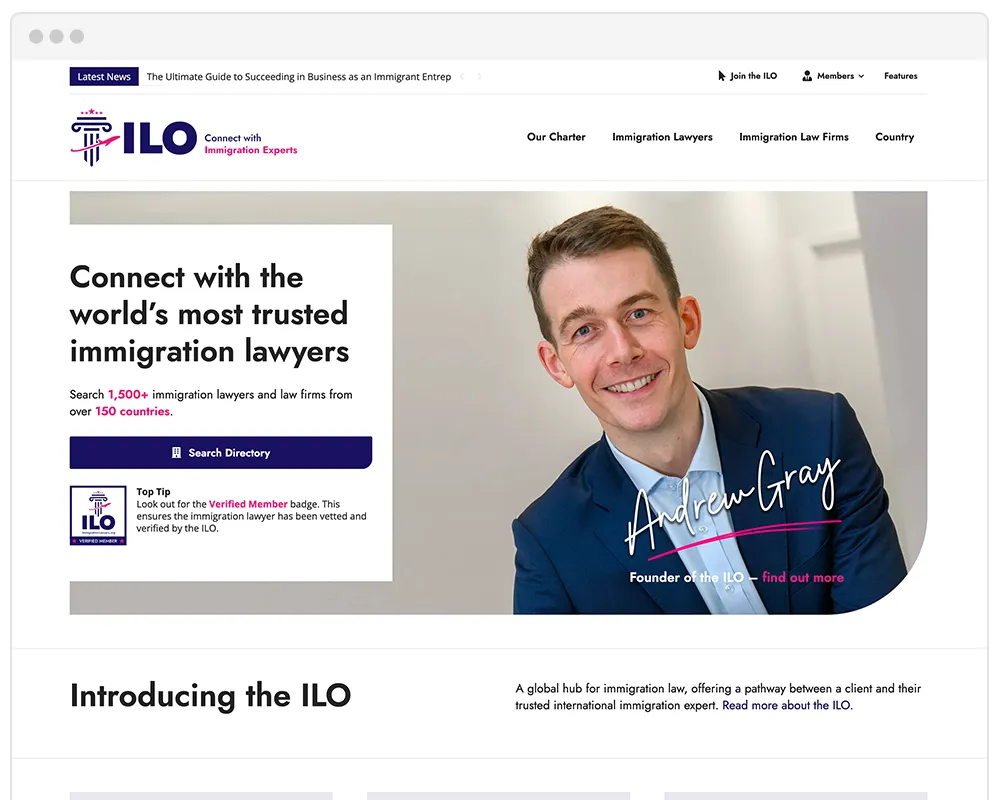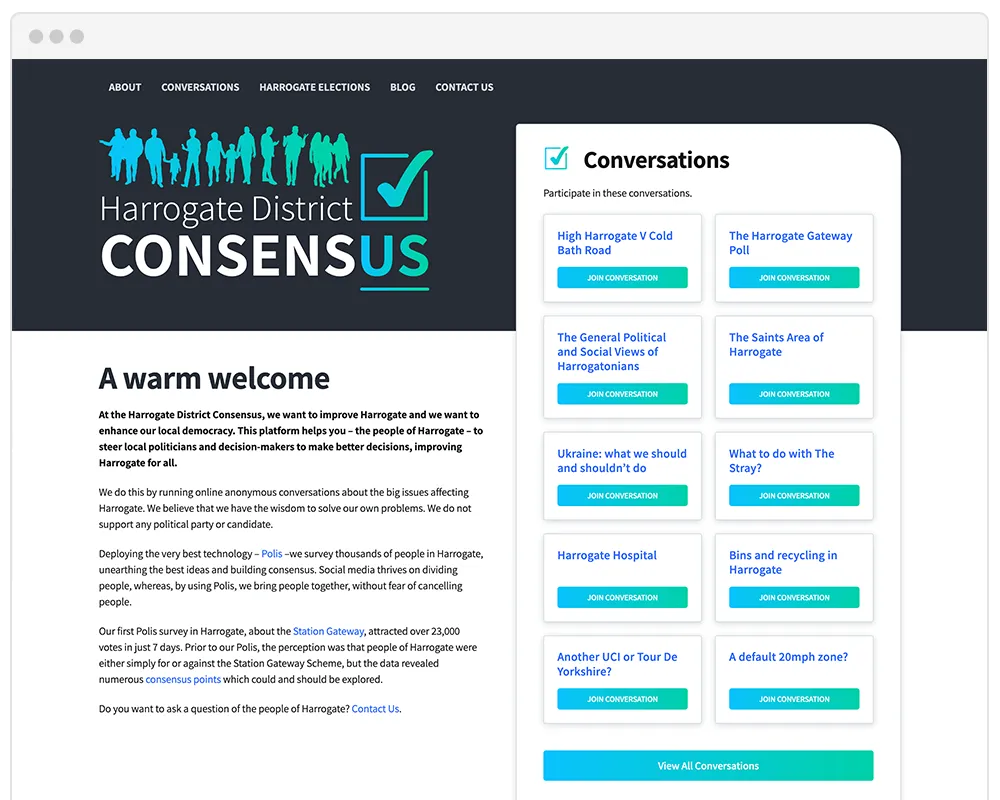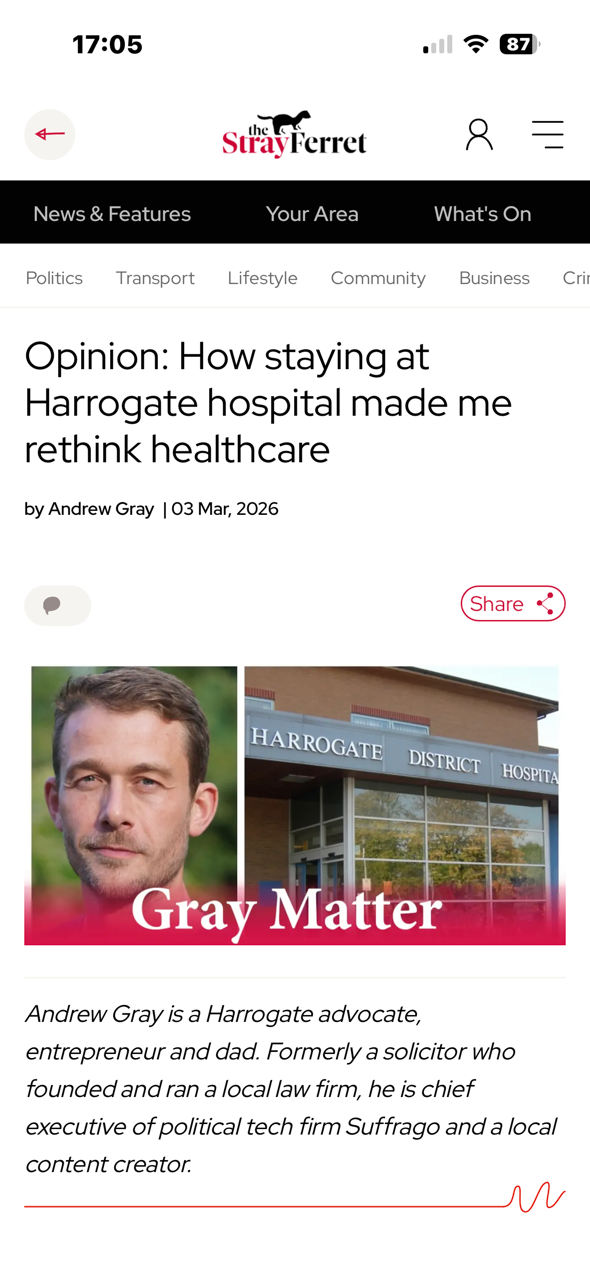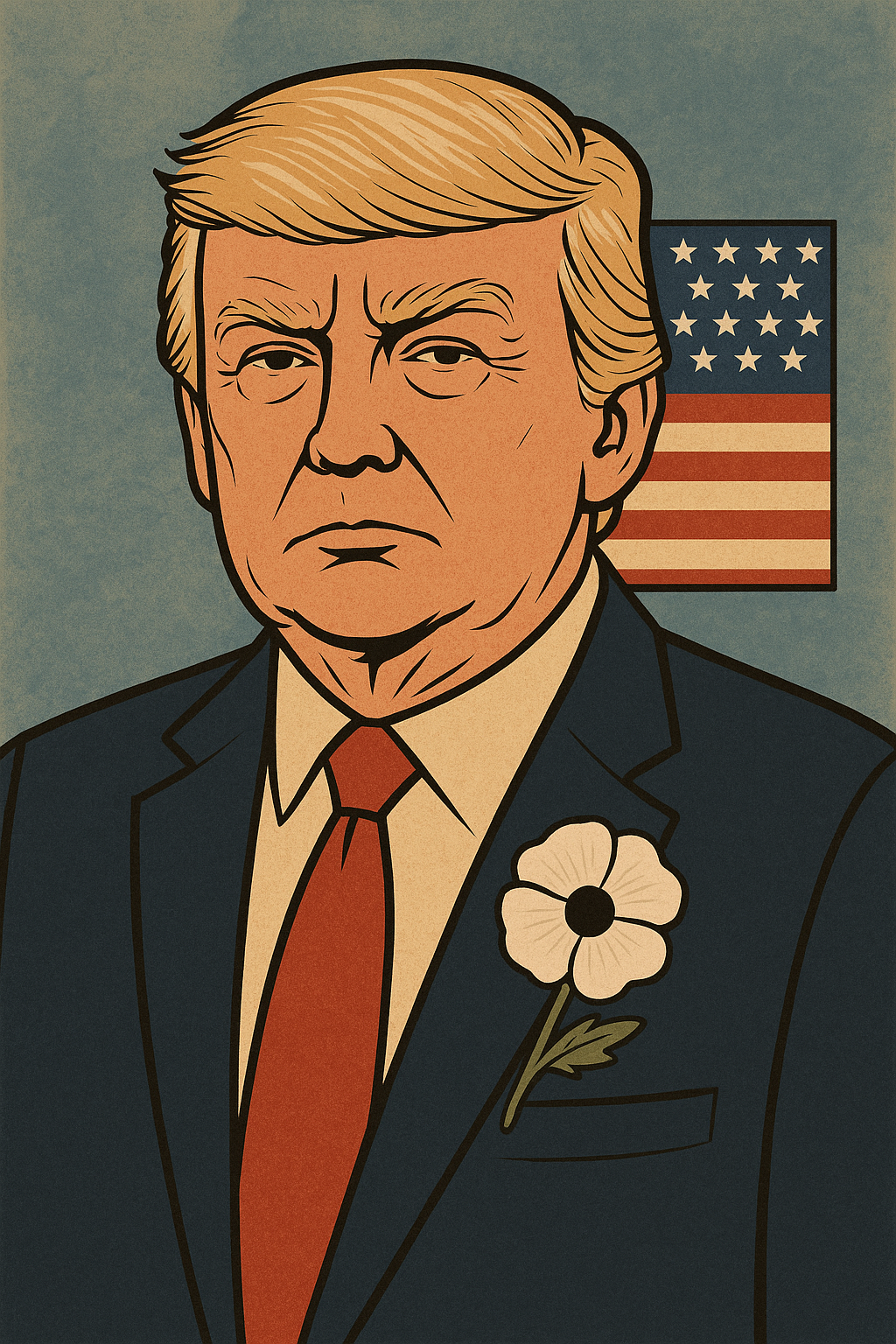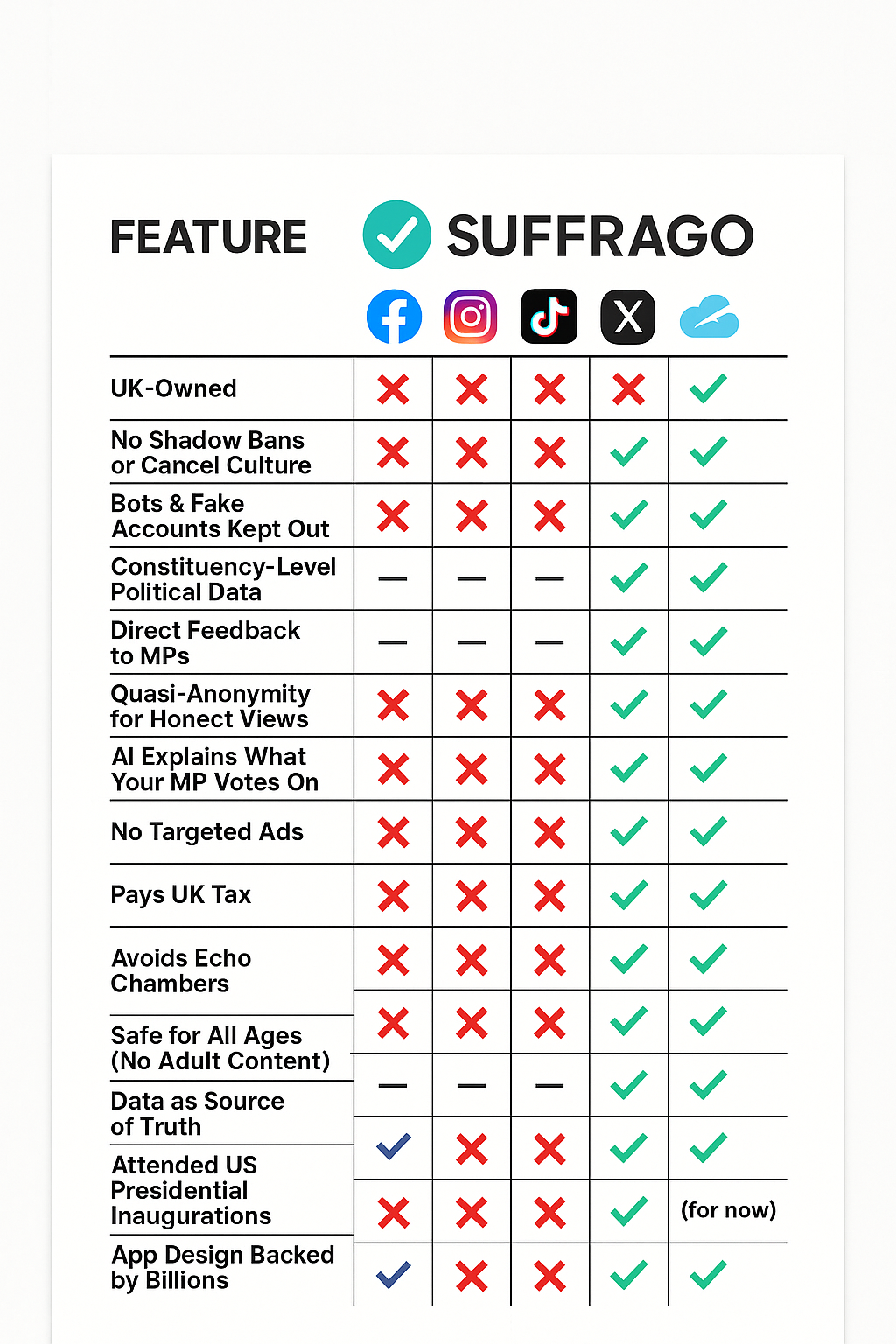Find out more about my consensus-based technology at Crowd Wisdom Project
Find out more about my consensus-based technology at Crowd Wisdom Project
Hi, I'm Andrew!
Ethical Consigliere - Mentor - Strategic Advisor - Non-Executive Director
A little about me: I’m a dad, husband, owner of some woods, lawyer, educator, first AI-powered UK parliamentary candidate, founder of the Harrogate International Academy, entrepreneur, founder of the non-profit Crowd Wisdom Project, writer, Non-Executive Director of the Just Algorithms Action Group, speaker, founder of two law firms which I sold, podcast host, Quaker (though not a pacifist), politics nerd, founder of the Harrogate District Consensus, Stoic philosophy fan, PPE graduate, recent environmentalist, law tutor, former Law Society president, former GMB union rep... and so much more. Read more about me here.
Latest Updates
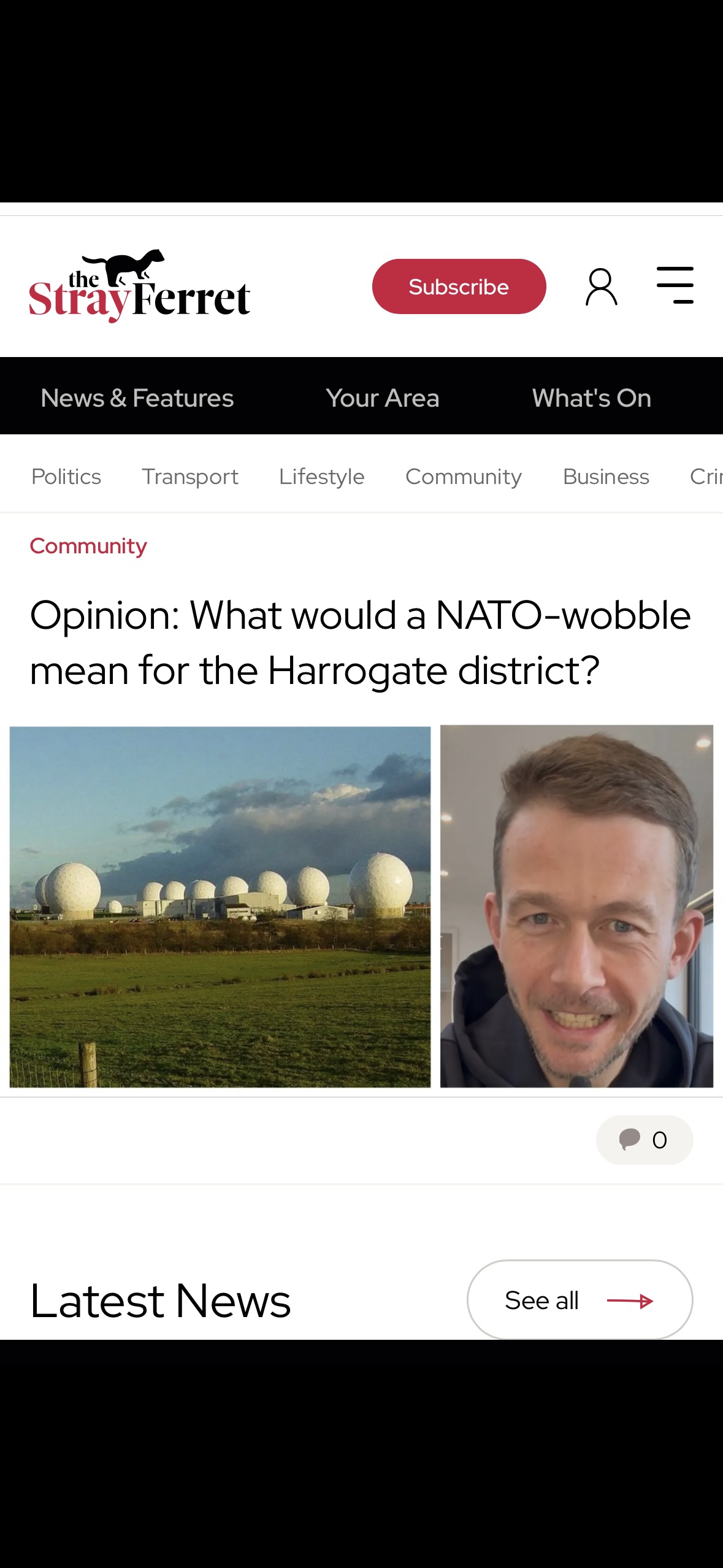
Harrogate, International Affairs, Latest News, Politics, Thought of The Day
Op-Ed: in the Stray Ferret
Read
This Article
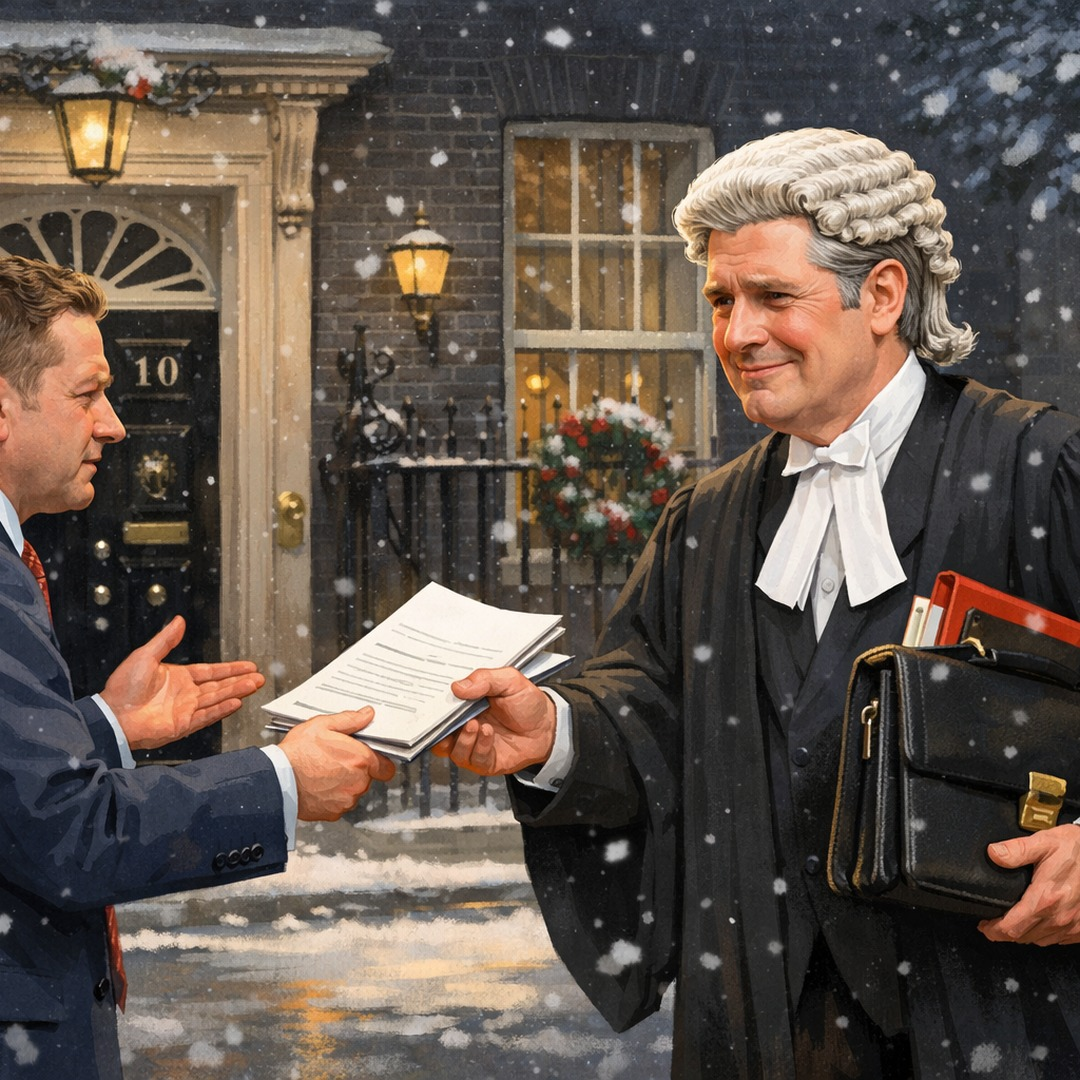
Business, Latest News, Legal, Politics, Tech, Thought of The Day
Keir Starmer isn’t doomed. He’s just stuck in lawyer-mode.
Read
This Article
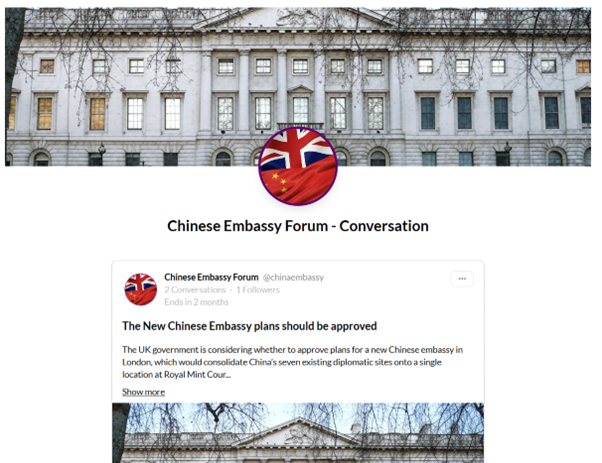
Business, International Affairs, Latest News, Politics, Tech
Connecting the Public to Power, Without Taking Sides
Read
This Article
Join My Mailing List
Copyright Andrew Gray of Cosensus Politics Ltd. All rights reserved. Terms & Conditions | Privacy Policy | Cookie Policy
Website by The Micro Agency.


